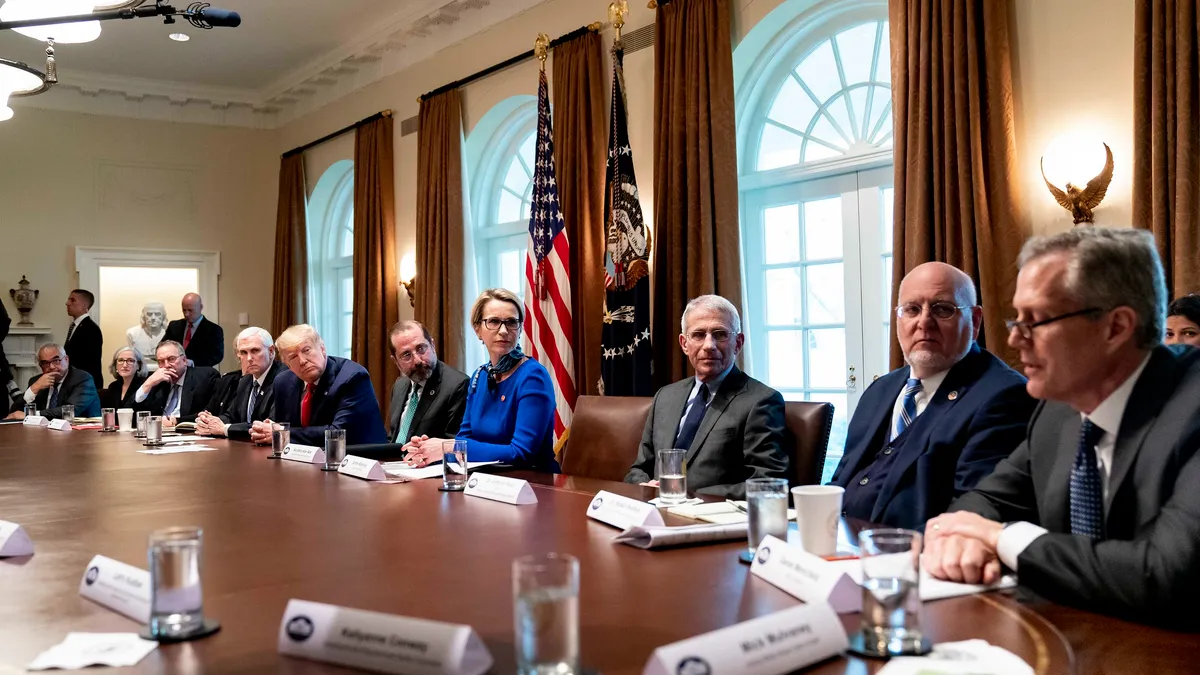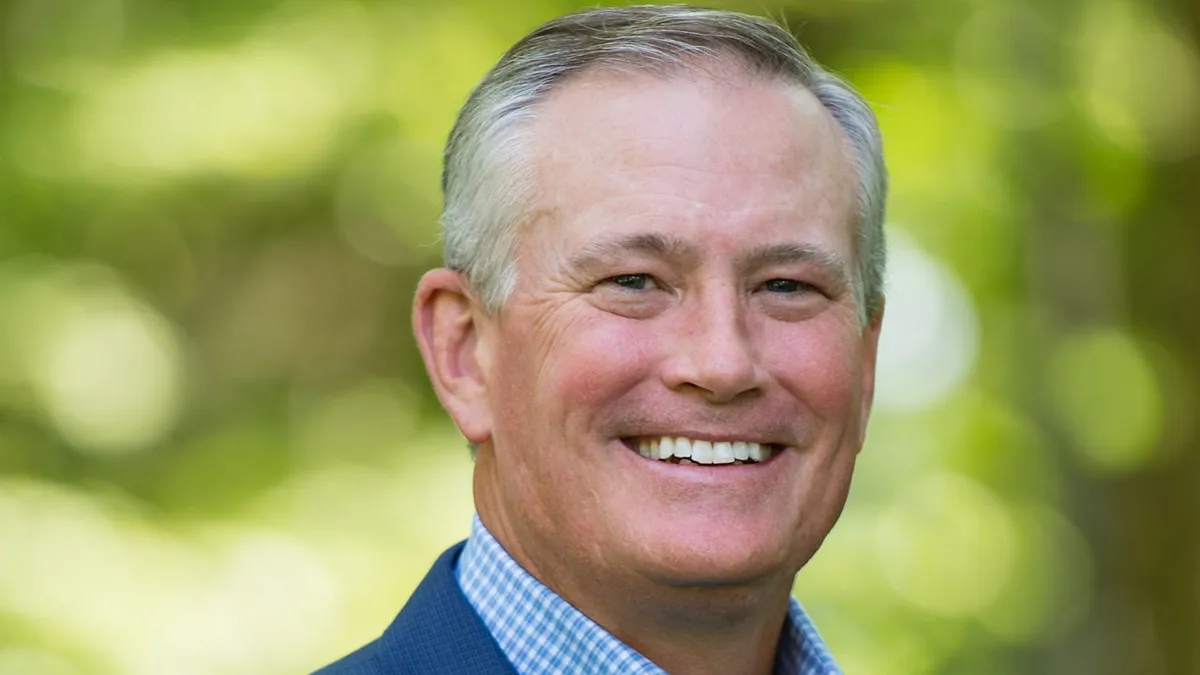White House officials on Sunday promised a new phase of high-throughput testing to better address the U.S. novel coronavirus outbreak, though some labs still worry about supply shortages.
Brett Giroir, appointed late last week to coordinate the nation’s coronavirus diagnostic testing efforts, said FDA's “historically fast approval” of diagnostics is enabling the country to move forward in fighting the pandemic.
Thermo Fisher's COVID-19 test received emergency use authorization from FDA late Friday. The medtech was the second commercially available test to win an EUA from the agency, after Swiss giant Roche announced an FDA nod early Friday.
Roche's product, which runs on its own cobas 6800/8800 high-throughput molecular testing systems, can deliver results in three and a half hours, the company said.
Thermo Fisher, says its product provides real-time detection of RNA from the SARS-CoV-2 virus and is able to quickly evaluate up to 94 patient specimens in less than four hours, including time for sample preparation and instrument analysis.
Vice President Mike Pence said on Sunday: "Based on the unprecedented speed of the FDA, which last week approved high-throughput coronavirus testings for Roche and Thermo Fisher, we will now have access in the days ahead to more than 2,000 labs across the country that have the equipment today to process coronavirus tests much more rapidly and a much higher volume for the American people."
Deborah Birx, White House coronavirus response coordinator, said while labs "can manage the high-throughput" they will need supplies as testing ramps up. Similarly, the American Clinical Laboratory Association has concerns about potential supply shortages that could hamstring those efforts.
"We need the continued commitment from HHS and the Administration to work with us to maintain the necessary volume of those supplies, so that we can remain proactive in the face of these expected challenges," said Julie Khani, ACLA's president, in a statement on Sunday.
Giroir said LabCorp and Quest have been testing for COVID-19 since last week using their own respective diagnostics but now the commercial labs "will be fully able, ready to run within the first part of this week the very high-throughput testing."
"We're going from somewhat manual, relatively slow phases to a testing regimen that we can test many tens of thousands to hundreds of thousands of individuals per week, and maybe even more," added Giroir. He noted that as the high-throughput testing is rolled out this week to the 2,000 commercial labs across the country "they'll have to adapt the tests slightly to their machines" and "get used" to the test.
“We are working with LabCorp and Quest to ensure the broadest availability of testing,” a spokesperson for Thermo Fisher told MedTech Dive on Sunday.
A spokesperson from Quest told MedTech Dive on Monday that with an FDA-approved high-throughput test now available, the company expects to "significantly expand testing" at several of its regional labs by the end of March. The Quest labs slated to be part of this test expansion are located in Chicago, Dallas, Kansas City, Los Angeles, Miami, Pittsburgh and Phoenix, as well as Teterboro, New Jersey. "The roll out of these tests in major cities means patients will have closer access to testing," said the spokesperson.
Birx said on Sunday the administration wants to leverage the "full force" of America's clinical labs with high-throughput coronavirus testing. At the same time, Birx cautioned "people who work in labs" to "make sure you have enough pipette tips, pipettors, and all of the equipment that you need" to run the tests.
"Additional samples will be going to these laboratories," Birx said. Labs "can manage the high throughput, but they need all of the supplies that they would normally need to run these tests." She added: "You know what you need; make sure you have that."
Once high-throughput testing is available on large diagnostic platforms this week, ACLA said on Friday it expects the industry's daily capacity to exceed 20,000 tests nationwide, with the potential to grow to 280,000 by April 1.
ACLA's members, including LabCorp and Quest, are "working on scaling up capacity and are part of a newly formed consortium working together with the Administration," according to the industry group.
Giroir concluded: "I'm not gonna say that the lab testing issue is over, because it's not. It's entering the next phase." He added that the Trump administration's priority now is to "get people into the system to be tested."


















